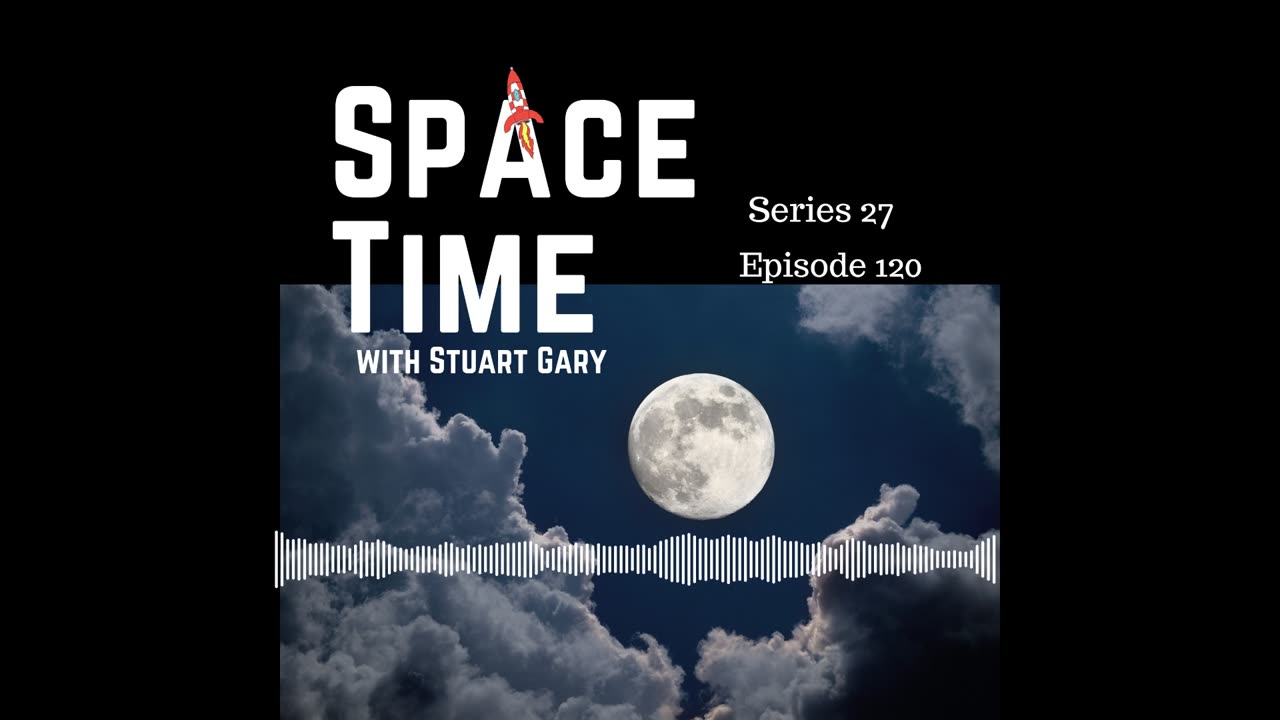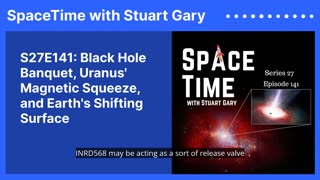Premium Only Content

Double Moon for Earth, Martian Atmosphere Mystery, and ISS Record Breakers
SpaceTime Series 27 Episode 120
*Planet Earth Just Got a Second Moon
Planet Earth has temporarily acquired a second moon, a tiny near-Earth asteroid named 2024 PTS. Captured by Earth's gravitational field on September 29, this 10-metre wide Space rock will remain in orbit until November 25, making it one of only five known mini moons. Discovered by the Atlas asteroid terrestrial impact last alert system, 2024 PTS belongs to the Arjuna asteroid group and is too small to be seen with the naked eye but can be observed through a telescope.
*Mars' Missing Atmosphere Could Be in Its Crust
A new study suggests Mars' missing atmosphere could be hiding in plain sight within the planet's crust. The research, published in the journal Science Advances, posits that ancient water on Mars may have reacted with the planet's ultramafic igneous rocks to form smectite clays, trapping carbon dioxide and converting it into methane. This process could account for up to 80% of Mars' initial atmosphere, providing a potential future energy source for human missions.
*Record Stay Aboard the International Space Station
Two Russian cosmonauts have returned to Earth after a record-breaking 374-day stay aboard the International Space Station (ISS). Their mission marks the longest continuous time spent on the ISS by any humans. The pair, along with an American astronaut who spent six months on the station, landed safely in Kazakhstan aboard the Soyuz MS-25 capsule. The current ISS crew includes eight members, with some scheduled to return to Earth in February next year aboard a SpaceX Dragon capsule.
00:00:00 " New study claims Mars could be hiding its missing atmosphere in plain sight
00:00:27 " The asteroid 2024 PTS was temporarily captured by Earth on September 29
00:04:35 " A new study claims the missing martian atmosphere could be hiding in the crust
00:10:54 " Two Russian cosmonauts have landed safely on Kazakhstan steppe
00:12:18 " October is the last day of the month celebrated as All Hallows Eve
00:15:37 " Astronomers describe stars in terms of spectral types based on temperature
00:24:33 " October has three great meteor showers, the draconids, the Taurids
00:29:40 " October is a great time to start stargazing
00:34:42 " October is the best time of year to see many southern constellations
00:36:30 " In the evening we've got Venus and Saturn above the western horizon
00:38:47 " Space Time is available every Monday, Wednesday and Friday through Apple Podcastswww.spacetimewithstuartgary.com
www.bitesz.com
-
 25:23
25:23
SpaceTime with Stuart Gary
8 months agoS27E141: Black Hole Banquet, Uranus' Magnetic Squeeze, and Earth's Shifting Surface
1172 -
 15:32
15:32
GritsGG
17 hours agoFull Auto ABR Sniper Support! Most Winning Quad Win Streaking!
24.7K4 -
 7:42
7:42
The Pascal Show
16 hours ago $1.98 earnedBREAKING! Police Provide UPDATE In Emmanuel Haro's Case! Is Jake's Lawyer Lying To Us?!
32.7K2 -
 2:29:46
2:29:46
FreshandFit
10 hours agoAfter Hours w/ Girls
135K90 -
 5:28
5:28
Zach Humphries
16 hours ago $2.59 earnedNEAR PROTCOL AND STELLAR TEAM UP!
36.4K4 -
 1:09:57
1:09:57
Brandon Gentile
1 day ago10,000 Hour BITCOIN Expert Reveals Why $13.5M Is Just The Start
36.3K7 -
 2:03:55
2:03:55
Badlands Media
10 hours agoDevolution Power Hour Ep. 382: DOJ Coverups, Clapper’s Team Sport & Trump’s Countermoves
149K26 -
 2:06:30
2:06:30
Inverted World Live
13 hours agoDon't Approach the Zombie Rabbits | Ep. 95
62.3K28 -
 3:26:45
3:26:45
Drew Hernandez
9 hours agoISRAEL PLANNING POSSIBLE DRAFT IN USA & TRUMP'S VIEW ON ETERNAL LIFE ANALYZED PT 2
47.7K69 -
 3:08:07
3:08:07
TimcastIRL
13 hours agoTexas Republicans Win, House Passes Redistricting Map, GOP Looks To Gain 5 Seats | Timcast IRL
212K115